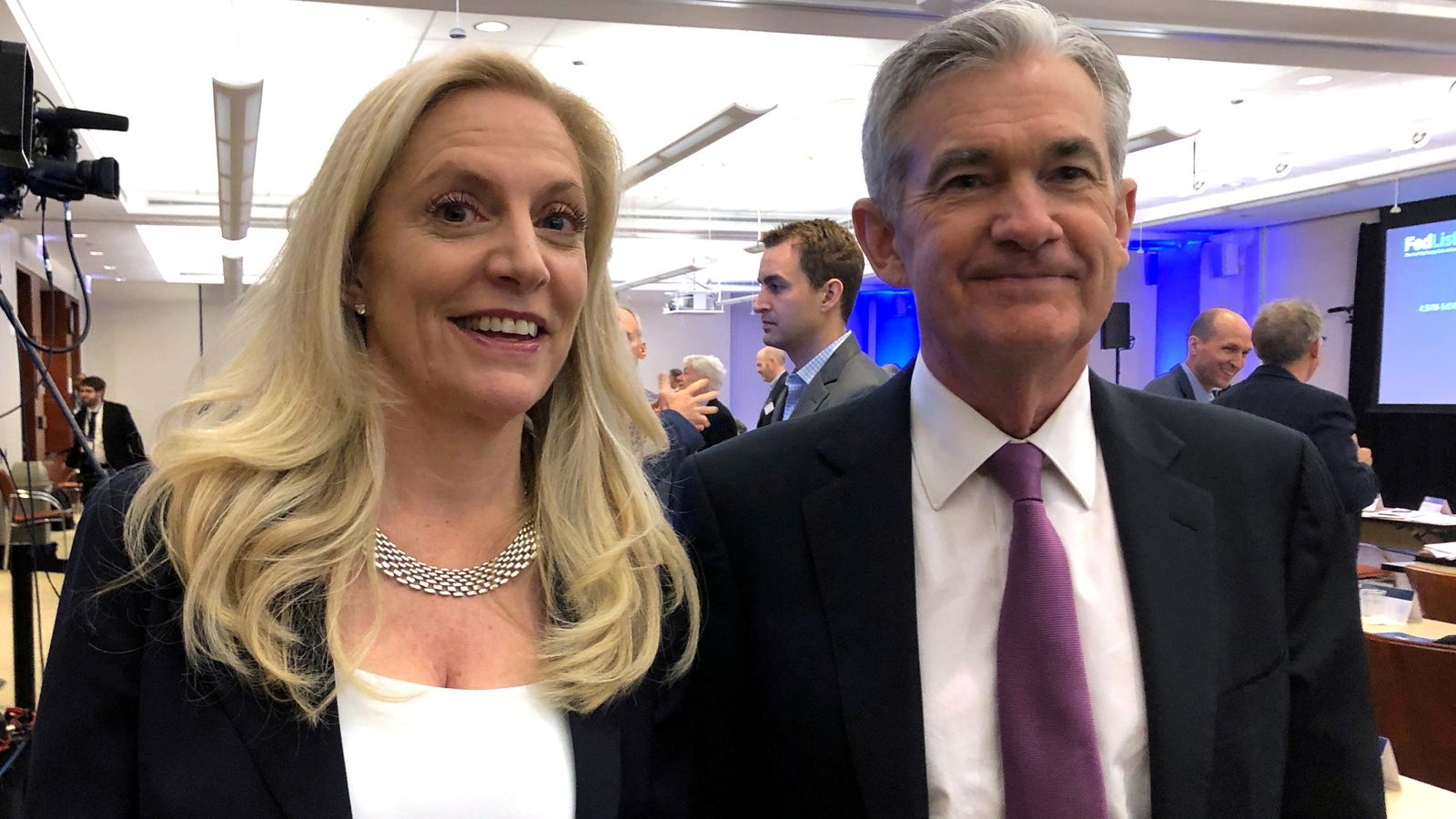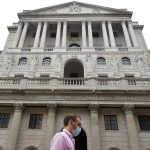In theory, being chairman of the US Federal Reserve is one of the most powerful positions in the global economy.
In practice, the incumbent, Jerome Powell, has probably not felt that during his term in office.
Having been appointed by Donald Trump four years ago, Mr Powell had to endure constant sniping from the former president for his stewardship of the US economy.
Almost immediately, Mr Trump carped frequently at Mr Powell for raising interest rates, undermining his independence in a way that had not been seen for nearly half a century.
Mr Trump even claimed at one point he was more worried about the Fed than he was about China.
Now Mr Powell, whose four-year term is due to end in February next year, again finds himself being talked about for all the wrong reasons.
Joe Biden, Mr Trump’s successor, indicated this week that he is close to making a decision on whether to reappoint Mr Powell – with the Washington rumour-mill speculating that he may instead choose Lael Brainard, a current Fed governor.
Signs of early Christmas shopping as inflation spike threatens household budgets
Ryanair takes flight from London listing in post-Brexit snub to UK financial centre
Grant Shapps insists promises to North ‘being fulfilled’ despite cutting key HS2 line and downgrading Northern Powerhouse Rail
Such a move would immediately have an impact on the financial markets because Ms Brainard is seen as more dovish than Mr Powell.
Markets currently expect the Fed to begin raising interest rates in the second half of next year once it has wound down its asset purchases – Quantitative Easing in the jargon.
Ms Brainard’s appointment would see markets repricing the timing of rate hikes.
The US dollar might be expected to fall under those circumstances while, with the prospect of interest rates staying lower for longer, there is every chance of a sell-off in US Treasuries (US government IOUs) if investors think it will raise expectations of higher inflation.
The decision, however, is very finely balanced because the appointment has to be ratified by the US Senate.
And that could be an issue. Mr Powell, a Republican, has some Senate critics, most notably the left-wing Massachusetts senator Elizabeth Warren who believes he should have been more rigorous on the issue of banking regulation.
She told the Fed chairman at a Senate hearing in September: “Over and over, you have acted to make our banking system less safe.”
Mr Powell has also been criticised for scandals involving two regional Fed presidents, Eric Rosengren in Boston and Robert Kaplan in Dallas, who were forced to step down following what were seen as irregular sales of shares.
However, having originally been appointed in 2011 as a Fed governor by Barack Obama, Mr Powell enjoys sufficient popularity with enough senators in both parties to be sure of his appointment being ratified.
By contrast, Ms Brainard, a Democrat, would be seen as a more overtly political appointment, having donated to Hillary Clinton’s failed run for the presidency in 2016.
Ms Brainard also, controversially, favours changing banking regulation to incorporate an assessment of the exposure of lenders to risks posed by climate change. This is something that Christine Lagarde has sought to do at the European Central Bank and would be greeted with delight by those on the left of Mr Biden’s party – but it would nonetheless mark a big departure from the Fed’s traditional mandate of seeking monetary stability and full employment.
Due to the 50/50 split in the balance of power in the Senate – vice-president Kamala Harris has the casting vote, giving Mr Biden the narrowest of margins – if all 50 Democrat senators fail to ratify her appointment, Mr Brainard would need the support of at least one Republican.
That is certainly possible: the West Virginia Democrat senator Joe Manchin, who has already been a thorn in Mr Biden’s side, has been very clear that he believes the Fed should have moved more quickly to taper QE.
Mr Manchin met Mr Powell earlier this week and told the newspaper The Hill on Thursday that he was “looking very favourably” at the current Fed chairman.
There is another reason why not reappointing Mr Powell would carry risks for Mr Biden. Traditionally, in order to create a sense of continuity, new presidents tend to stick with the Fed chairman they inherited from their predecessor. Until Mr Trump replaced Janet Yellen in 2018 with Mr Powell, the last president not to reappoint the Fed chairman they inherited was Jimmy Carter, who declined to reappoint Arthur Burns, an appointee of Richard Nixon, in January 1978.
Mr Biden would also risk, if he replaces Mr Powell, being blamed for any failures of US monetary policy.
Some economists and market participants, though, do favour Ms Brainard.
Steven Bell, chief economist at the fund manager BMO GAM, said: “Lael is reckoned to be dovish but she is a distinguished economist who may be quicker to realise the errors of the current complacency at the Federal Reserve.
“Powell is a lawyer – and just as I would not want an economist to defend me in a court of law, I don’t think a lawyer is best suited to defend the US economy.”
And Mohamed El-Erian, chief economic adviser at Allianz and one of the world’s most influential fund managers, told CNBC this week: “If you were to put a gun to my head and say choose one, I would go with Lael Brainard, because I think economic expertise is going to be absolutely critical as we navigate this [period].”
Others, meanwhile, argue that the appointment does not matter a great deal because the Fed is likely to have to tighten monetary policy next year regardless of who is chairman.
Ipek Ozkardeskaya, senior analyst at the online trading platform Swissquote, said: “Inflation doesn’t look like it would temper itself with zero rates and an ultra-expansive monetary policy in place.
“That means that the next Fed Chair won’t be a super hero that Jerome Powell has been, who with his great cash splash strategy managed to send stock prices to all-time highs, even though the US and the world was hit by a deadly pandemic.
“So maybe, but just maybe, it’s a perfect time for him to leave, and leave Lael with a mess to be tidied fast. No matter how dovish she is, she will need to deal with three-decade high inflation, and there are not a million alternatives.”
The possibility also remains that Mr Biden could spring a surprise and appoint someone else entirely.
“Raphael Bostic, president of the Atlanta Fed and Sarah Bloom Raskin, a former Fed official and deputy secretary of the Treasury during Mr Obama’s presidency, have both been mentioned. Mr Bostic would be a landmark as the Fed’s first black chairman.
The way to bet is on either Mr Powell or Ms Brainard. But Mr Biden’s previous unpredictability, for example in how he withdrew US forces from Afghanistan, has left many people guessing.






















